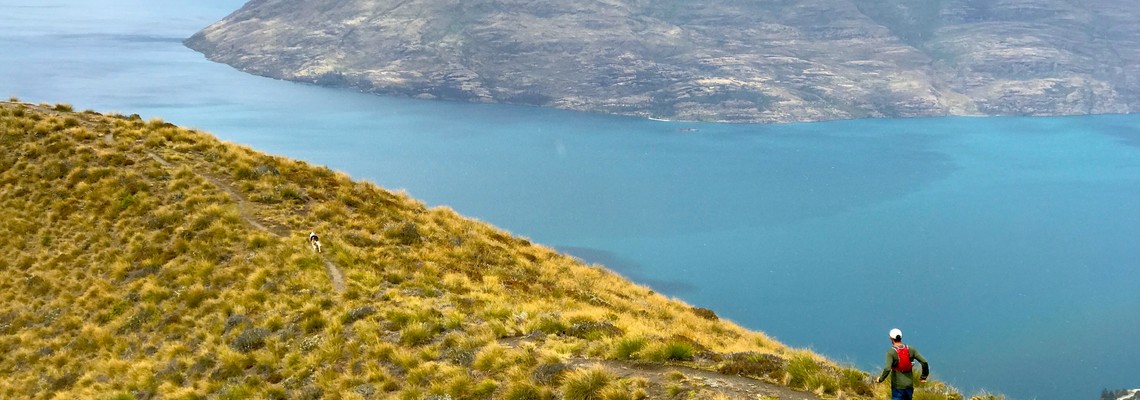Rather than another graph demonstrating the rapid expansion of this pandemic, let’s hear directly from real people. Especially those in Europe where where the situation is ahead of the US, as that can give us a heads-up as to what may develop in the States. Indeed, names are being withheld, as the social situation in some areas has become recriminatory - read on.
ASSUMPTIONS
- This pandemic will change our world: millions will become sick or die, jobs and homes will be lost, and the cost to the economy will be in the trillions of dollars.
- Social Distancing is vital; currently our most important tool.*
- Outdoor exercise is scientifically proven to the best thing for anyone’s physical, mental, and emotional health.
QUESTION
How do we act safely, as responsible citizens, while still maintaining our health through outdoor exercise??
REPORTS FROM THE WORLD
France
3/20: "I hid all my activities on Strava so people won’t get angry to see I can still run near my house."
3/21: Amazon halted shipping of non-essential items in France and Italy.
3/24: France (and Italy) people are not allowed to walk or run more than 2km from house, except for essential activities. Started with a 38€ fine, then doubled, and doubled again because it was not working. Now it is 1,500€. Andorra is in 11th day of a 6,000€ fine. France added requirement for outing to be less than one hour, because people were many running laps within 2km of their house. "People are doing tons of vert climbing stairs in buildings and parking lots."
3/24: "Zwift is what I do on the bike. I rode the 'Alp d Huez' one day; last week I 'climbed' 4,300 meters of vert!"
Italy
3/20: "Things are tough here in Italy as you can imagine. At the moment running is illegal, so you can't go over 200 meters from your house. People can't biking or climbing or whatever except to buy their cygaretts. The mood in Italy is like a "surviving mode". Life it's a bit hard at the moment and I hope you guys will have more luck than us. I hope this will be our chance to improve and don’t mess things up worse. Time to reduce pollution, to think of our planet and be critical consumers."
Western Europe
3/21: "The outdoor ban is really tricky here and I'm not sure that I want to speak publicly about it. I already had major arguments as I think that it is wrong to require the same confinement for someone living in remote areas who rarely sees others, vs people living in high density urban areas. I understand the need to cut risky activities like ski mountaineering or climbing in order to give more space to rescue and ER... But to ban running and hiking is wrong IMO. People already go nuts after one week of confinement. It's not healthy."
3/23: "I will not speak publicly. The situation has escalated over the weekend in Europe - this is just too sensitive. People are dying, losing their jobs/businesses - a discussion on outdoor activity would only lead to more controversies and hatred. One country is voting a change in the constitution to remove temporarily some basic rights... People are spying on each other, denouncing the ones going outside on social media and mainstream media..."
3/24: "I have not received mail for 10 days. I'm more concerned about people than the virus."
Germany
3/23: "They just passed new rules this weekend. You are able to go outside, but not in a group larger than 2 (unless it is direct family i.e. parents and children), so solo running, cycling, and walking is allowed."
3/24: "In France they started their lockdown over the weekend, but the restrictions do allow for a bit of running. Here there was a lot of talk about Germany having a similar lockdown, but there has been no lockdown, but rather restrictions. The Health Department still recommends people get out and about, and exercise their lungs without being in a group; tighter restrictions are not likely to happen, as people seem to be sticking to the rules. All events until 4/30 are cancelled, club training, fitness studios, pools, and sports facilities are closed until at least the 3/30, but most have issued a restriction until 4/19."
3/24: Germany actually has more cases than France, but has a more robust health care system, so the restrictions are less. German hospitals have even admitted patients from across the border in France.
Norway
Somewhat like New Zealand, with 5.4 mil people and even more space. Must self-isolate when moving within the country, as Oslo had all the infections, and last week 600,000 people moved out of the city into the countryside.
Chile
3/20: "Chile was actually pretty chill until a few days ago. Now they’ve closed their borders. I realized things were getting weird when I tried to get to a peak near Bariloche and found that Argentina had closed its national parks. I went back to Chile so there would be only one border between me and home, just before the border closed ... some may be stranded."
Moab
3/20: This tourist town not only closed bars and restaurants, but all lodging including campgrounds. "Moab is safer if you stay home", the mayor said. "And you’re safer too, because there are likely more medical resources where you are."
3/21: 'The trailheads and streets are empty....it's not so bad for us! I just feel bad for the local businesses. I don't really want to do a podcast about this. There's too many unknowns and too many different circumstances/opinions so there would be no way that I could make it through the podcast without offending people."
National Parks
The Parks have been open, with no admission fees or facilities. People naturally flocked to them, like spring vacation. Rocky Mountain NP was the first to close, after the gateway town of Estes Park demanded it. Yellowstone, Grand Teton, and Great Smoky Mountains closed late on 3/24. Oregon closed state parks on 3/21.
This virus is contagious; please remember that courtesy is just as contagious.
* Social Distancing Note: This is critical and we all must do it. But it is actually a stopgap; adequate disaster preparation, a health care system that can take care of sick people without charging them, and a strong and early federal response can provide containment of an epidemic, not just flatten the growth curve.

